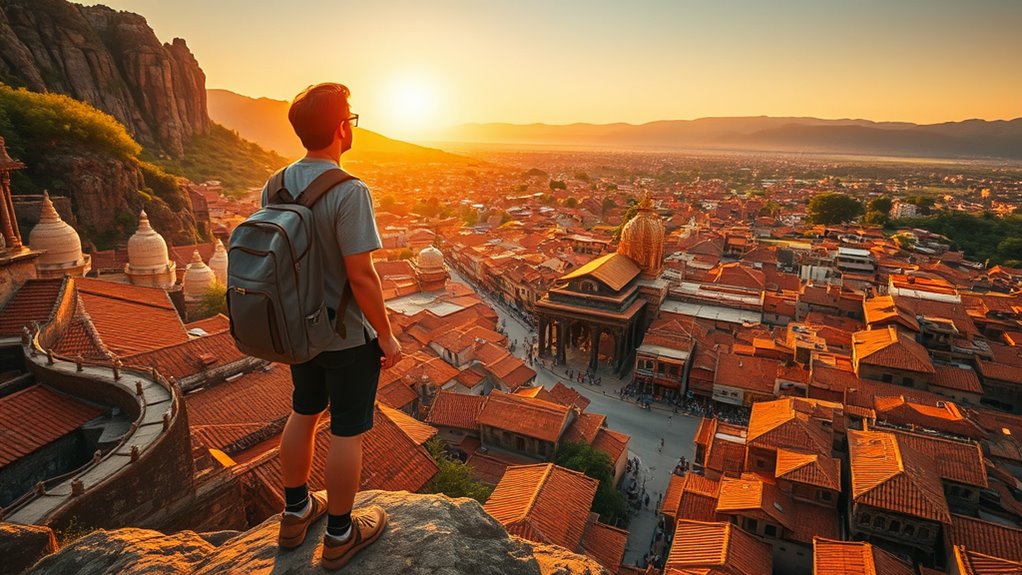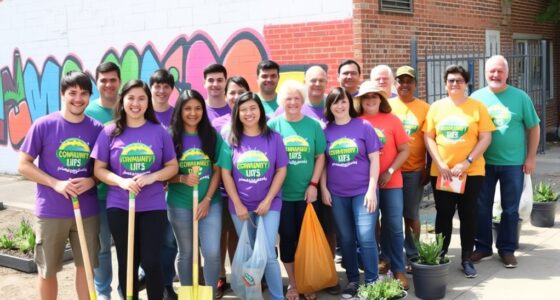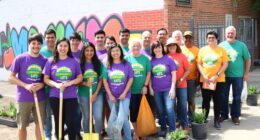Traveling teaches you more than facts; it immerses you in new cultures, enhances your language skills, and builds resilience. By steering through unfamiliar environments, you develop problem-solving abilities and confidence. Engaging with locals broadens your perspective and fosters empathy. These real-world experiences encourage personal growth and adaptability that traditional education can’t match. If you want to discover the full breadth of what travel can teach you, keep exploring how these lessons shape you.
Key Takeaways
- Exposure to diverse cultures fosters empathy, broadening perspectives beyond stereotypes.
- Immersive language experiences accelerate learning and understanding of cultural nuances.
- Navigating unfamiliar environments develops problem-solving, adaptability, and resilience skills.
- Real-world interactions promote active learning and curiosity, enhancing personal growth.
- Travel creates lasting lessons that improve both personal development and professional capabilities.

Have you ever considered that travel might be one of the most powerful forms of education? When you step outside your familiar environment, you open yourself up to experiences that textbooks simply can’t replicate. One of the most immediate lessons you learn through travel is the value of cultural exchange. As you interact with locals, you gain firsthand insight into their customs, traditions, and worldviews. These exchanges push you to see life from perspectives different from your own, fostering empathy and a deeper understanding of global diversity. Instead of reading about different cultures, you experience them directly—sampling authentic cuisine, participating in local festivals, or simply observing daily routines. Each interaction becomes a lesson in human connection, breaking down stereotypes and broadening your worldview in ways no classroom can match.
Language immersion is another vital aspect of travel that profoundly impacts your learning. When you’re immersed in a country where a different language is spoken, you’re compelled to adapt quickly. You pick up new vocabulary, develop an ear for pronunciation, and learn idiomatic expressions naturally. This kind of experiential learning accelerates language acquisition far beyond what traditional classroom settings can offer. You might stumble over words at first, but those mistakes become valuable lessons, boosting your confidence and fluency. Engaging in real conversations with native speakers helps you understand cultural nuances embedded in language, enriching your comprehension. Over time, what once seemed intimidating becomes second nature, and you walk away with a genuine ability to communicate in another tongue—an invaluable skill in our interconnected world.
Travel also teaches resilience and adaptability. Navigating unfamiliar environments, dealing with language barriers, or solving logistical challenges pushes you to think on your feet. You learn to remain patient and flexible when plans fall through or when faced with unexpected obstacles. These experiences build confidence and self-reliance, qualities essential for personal growth. Furthermore, travel encourages curiosity and a proactive attitude toward learning. Instead of passively absorbing facts, you seek out new knowledge, ask questions, and immerse yourself in new environments. The lessons learned from these adventures stay with you long after you return home, shaping your perspectives and skills in ways that academic courses often can’t replicate.
In essence, travel transforms you into a more aware, adaptable, and compassionate individual. It’s an active process of learning that happens outside the classroom, through real-world experiences and genuine human interactions. When you embrace travel as a form of education, you’re not just collecting souvenirs—you’re collecting lessons that will serve you for a lifetime.
Frequently Asked Questions
How Does Travel Improve Cultural Understanding?
Travel improves your cultural understanding by immersing you in new environments through cultural exchange and language immersion. As you interact with locals, you gain firsthand insights into their traditions, values, and perspectives, breaking down stereotypes. This active engagement fosters empathy, open-mindedness, and respect. By experiencing different ways of life directly, you develop a richer, more nuanced appreciation for diversity, making you more globally aware and culturally sensitive.
Can Travel Help Develop Soft Skills?
Yes, travel can help you develop soft skills. When you travel, you engage in team building activities, working with others to navigate new environments. You also enhance language acquisition by practicing new languages in real-life situations. These experiences boost your communication, adaptability, and problem-solving skills. As a result, you become more confident, open-minded, and better prepared to handle diverse social and professional settings.
What Are the Environmental Impacts of Travel?
The environmental impacts of travel can be surprising. You might think your trips are harmless, but they often contribute to pollution, habitat destruction, and carbon emissions. Yet, embracing sustainable tourism and eco-friendly practices can make a difference. By choosing eco-lodges, minimizing waste, and supporting local conservation efforts, you help reduce your footprint and protect the destinations you cherish. Your mindful travel choices can truly transform impacts into positive change.
How Does Travel Influence Personal Growth?
Travel influences your personal growth by pushing you out of your comfort zone and allowing for language immersion, which improves communication skills. As you navigate new environments, you experience self-discovery, gaining confidence and independence. You learn to adapt to different cultures and perspectives, broadening your understanding of the world. These experiences foster resilience and open-mindedness, shaping your character and helping you grow into a more empathetic and self-aware individual.
What Are Budget-Friendly Educational Travel Options?
You can explore budget tours and educational programs that make travel affordable and enriching. Did you know that 60% of travelers find budget options just as fulfilling as luxury experiences? These options often include group tours, volunteer programs, or cultural exchanges that provide hands-on learning. By choosing these, you gain valuable insights while keeping costs low, making education through travel accessible and enjoyable for everyone.
Conclusion
Travel as education opens your eyes to new cultures, perspectives, and skills. It’s proven that 85% of travelers say their experiences boost creativity and problem-solving. So, when you explore unfamiliar places, you’re not just sightseeing—you’re actively growing. Embrace every journey as a chance to learn something new. Remember, every trip enriches your mind and broadens your understanding, making travel a powerful tool for lifelong education and personal development.









